Air Quality In Iran's Capital Tehran Turns 'Hazardous'
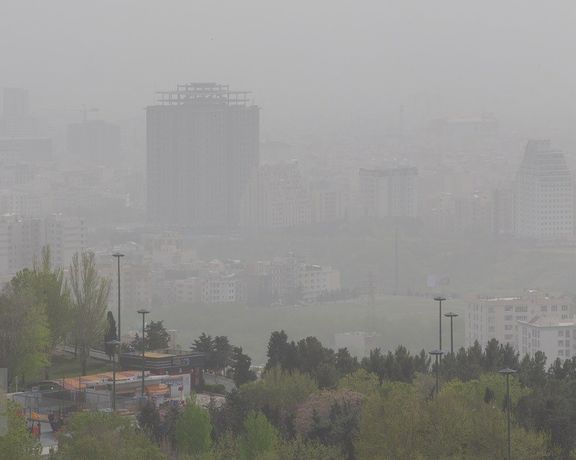
Iran’s capital Tehran on Friday had the worst air quality index in the world, according to data by IQAir -- a global air quality monitoring company.

Iran’s capital Tehran on Friday had the worst air quality index in the world, according to data by IQAir -- a global air quality monitoring company.
The company’s real-time air quality index (AQI) for Tehran was 206 on Friday, putting the Iranian capital on top of the list followed by Beijing and Pakistan’s Lahore with AQIs of 182 and 173, respectively.
According to the Swiss company that specializes in protection against airborne pollutants, the index of over 200 is considered ‘Very Unhealthy’.
The air quality is not much better in other Iranian cities like Esfahan, and people have been warned against going out, as a wave of dust carrying pollutants has hit the country from neighboring Iraq.
An official from Iran’s meteorological organization, Mohammad Asghari, told state broadcaster IRIB on Friday that 26 provinces of the country will be engulfed by dust in the coming days.
Using another pollution standard, Asghari said Tehran’s air quality index was 491, which is only nine points less than the maximum level in this scale and is considered ‘Hazardous’.
Pollution in Tehran also forced authorities to cancel outdoor sport matches scheduled for Friday while schools have gone virtual again only a week after they opened following the New Year holidays and a year of Covid-19 restrictions.
Air pollution is a persistent problem in large Iranian cities, especially in cold and hot weather when more electricity is used and power stations resort to using heavy dirty diesel fuels because of natural gas shortages.
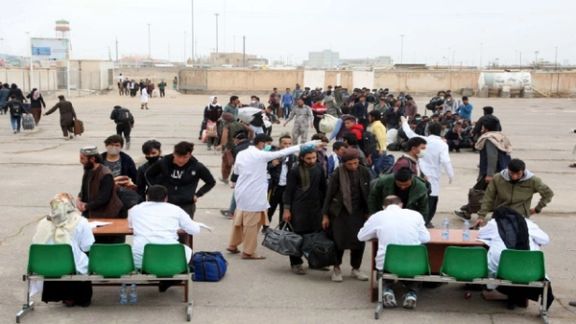
A conservative newspaper in Tehran says the knife attack on clerics in Mashhad this week was an outcome of Iran's "wrong policy" about Afghan immigration.
An Afghan immigrant attacked three clerics at the most important Shiite shrine in Iran April 5 in what President Ebrahim Raisi has called a “Takfiri” assault, referring to Sunni extremists.
Calling the incident " a terrorist attack", the Jomhuri Eslami said in its editorial on Thursday, this is only one of the negative consequences of the Iranian government's "easy approach" to the takeover of Taliban in Afghanistan.
The daily also claimed that "Taliban elements have brought all sorts of weapons to Iran and have prepared places to recruit Takfiri elements," and called all this part of a special plot to carry out the conspiracies hatched by the enemies of the Islamic Republic.
Demographic danger
According to Jomhuri Eslami, "some 8 million Afghans are living in Iran and every day at least another 10,000 Afghans arrive legally or illegally. The daily also revealed that Iranian officials issue up to 7,000 visas to Afghans every day while the borders are left open for immigrants to enter illegally.
If this estimate of the Afghan population in Iran is correct, it means around 10 percent of the country’s 83-million population is comprised of Afghan nationals. Some even argue that Iran’s actual population is much less than what the government claims, since millions have left the country for good.
The daily added that most Afghan immigrants are Pashtuns, and that up to 75 percent of births in hospitals in Tehran and its suburbs are registered by Afghans. The birth rate among Afghan women in Iran is between 4.7 to 5.2, the daily reported, adding that there are 600,000 Afghan students at government schools, while officials predict that this number will rise to 1.2 million next year.

As a result, the daily warned, that the demographic combination of provinces such as Esfahan, Yazd, Kerman and Sistan-Baluchestan is changing and some 35 percent of the population in some areas are Afghans. This is evident around the Revolution Square, Azadi Square and the Persian Gulf Lake near Tehran.
Jomhouri Eslami further claimed that with the 2019 legislation granting Iranian citizenship to the children of Iranian women marrying foreigners, a tsunami of “buying Iranian girls and women” from poor families has started in Iran.
The daily warned that the combination of these changes will lead to an uncontrollablesocial catastrophe including insecurity in the near future.
Taliban Infilteration
The editorial noted that although the Taliban had committed many crimes in the first round of their takeover in 2001, including murdering two dozen Iranian diplomats in Mazar-i Sharif, Iranian officials welcomed the second Taliban takeover eight months ago, claiming that the Taliban have changed. The daily also warned that the Taliban is not an entity separate from the ISIS. "You cannot separate the Taliban from the ISIS, in the same way that you cannot separate the United States from Satan," the editorial said.
Earlier, even before the attack at the shrine in Mashhad, Iranian observers, including Jomhouri Eslami's editor Masih Mohajeri had warned that uncontrolled immigration of Afghans into Iran might lead to an infiltration by the Taliban and ISIS militants that will threaten Iran's security. The daily, as well as commentators in other media outlets in Iran had also warned that the influx of Pashtuns into Iran might lead to disputes and even conflicts between Iranian Shiites and Afghan Sunnis.
Iranians traditionally support the Hazarah and Tajik communitiess of Afghanistan who speak the same language as Iranians, but do not trust Pashtuns who live further down in southern Afghanistan.
The daily stressed that "The Taliban has not changed during the past 20 years and is still the same terrorist group." Jomhouri Eslami further called for replacing all the pro-Taliban Iranian officials at the Iranian embassy in Kabul and the Iranian Foreign Ministry. It also called on Iran's state television to replace its policy of “beautifying the Taliban” with real news dissemination. "Iran should be purged from Afghan infiltrators, the borders with Afghanistan should come under strict control and Iran should recognize only an Afghan government that comes to power through a free and fair election," the editorial concluded.
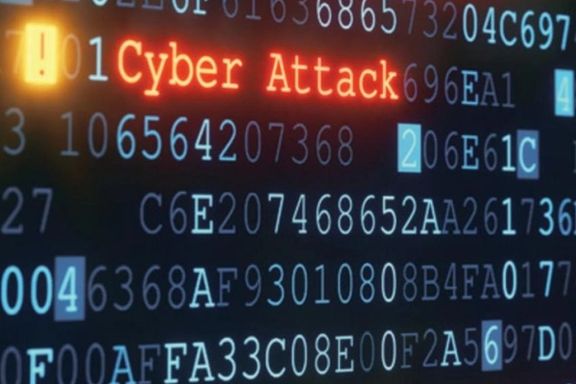
Meta, formerly the Facebook company, has removed two Iranian cyberespionage groups that were targeting academics, activists, journalists and other victims.
According to its latest Adversarial Threat report released on Thursday, the two networks were targeting people across the internet to collect intelligence, manipulate them into revealing information, and compromise their devices and accounts.
The first network was linked to a group of hackers known in the security industry as UNC788. The network is Iran’s decade-long campaign of credential harvesting and surveillance operations that is possibly sponsored by Revolutionary Guard (IRGC). It targets Iranian diaspora, dissidents and human rights activists from Israel and Iran, Iran-focused academics, politicians in the US, people in the Middle East including the Saudi military, and journalists around the world.
The other group is a separate newly identified cyberespionage network that was targeting companies in the energy, telecommunications, maritime logistics, semiconductor, and information technology in several countries, including the United States, Israel, Saudi Arabia, UAE, Russia, Canada, and others.
The previously unreported hacking group relied on phishing and extensive social engineering tactics to impersonate the domains of legitimate companies and used a complex network of fake personas across Facebook, Telegram, and other platforms along with a network of fake recruiting firms.
Both groups used unique malware applications disguised as a VPN app, a salary calculator, an audio book reader, a chat app, a birthday calendar app, or a Quran app.
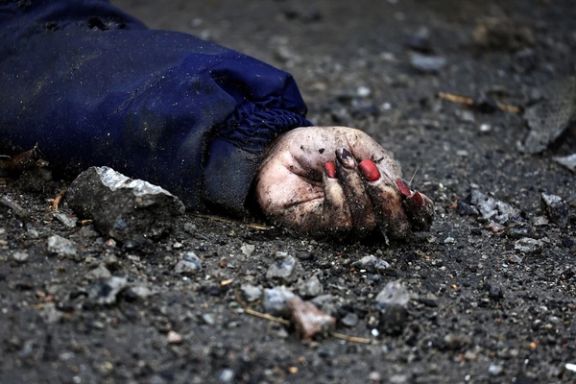
Iran voted against the resolution move to suspend Russia from the UN Human Rights Council (UNHRC), calling it “politically motivated”.
Speaking at the UN General Assembly meeting on Thursday, the Islamic Republic’s envoy to the world body Majid Takht-Ravanchi said that in Iran’s opinion, the text of the draft resolution was based on political motivations, which can harm UN’s impartiality.
UN General Assembly voted to suspend Moscow over “gross and systematic violations and abuses of human rights” by Russian troops in the invasion of Ukraine.
Iran, China, Cuba, and Syria were among 24 countries opposing the resolution. Among 54 abstentions were Egypt, India, Iraq, Jordan, Kuwait, Qatar, Saudi Arabia, Singapore, South Africa, and the United Arab Emirates. Israel and Turkey both voted for the resolution.
Takht-Ravanchi emphasized that the UNHRC’s work must be done in a nonpolitical and non-confrontational manner and membership at the council should not be politicized.
However, he expressed Iran’s deep concerns about the dire humanitarian situation in Ukraine, adding that the Islamic Republic believes in protecting sovereignty and territorial integrity of all countries.
In early March, Iran abstained in a UN General Assembly resolution deploring the Russian invasion of Ukraine. The only previous example of a country being suspended from the UNHRC was Libya in 2011, after a crackdown by the government of Muammar Gaddafi against protests during the ‘Arab Spring.’
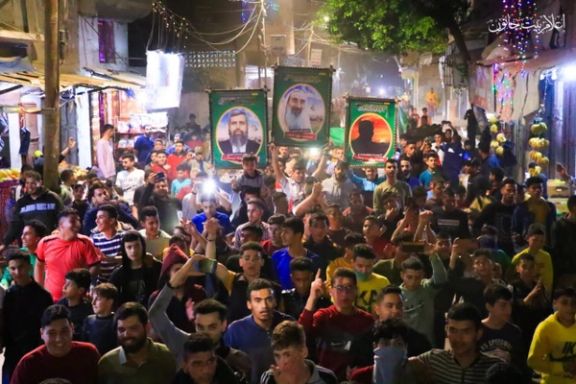
Supporters of Iran-backed Lebanese Hezbollah and Palestinian militant group Hamas held street parties celebrating the terrorist attack in downtown Tel Aviv.
Social media platforms were full of photos and videos of Palestinians cheering and distributing sweets following the attack that killed two and injured several Israelis.
Hezbollah supporters in southern Lebanon and Palestinians in Ramallah in West Bank stopped cars and gave them sweets, while people in Jenin gathered at one of the city’s square to celebrate.
In Beit Hanoun people held rallies to express support for the attack, with participants carrying posters of Hamas founder Ahmed Yassin, Salah Shehadeh -- a former leader of Izz ad-Din al-Qassam Brigades that is the military wing of Hamas – and Muhammed Deif, a commander of the brigades who has been Israel's 'most wanted' man for the last 26 years.
Hailing the attack, Mushir al-Masri, a senior official of the Iran-funded Hamas, told Al-Jazeera television that “Resistance operations are a natural response to Israel’s crimes against the Palestinian people”.
Describing the attack as “a heroic operation”, Hezbollah said in a statement that “the Palestinian resistance proved its power to confront the occupying regime” and that the series of “successful operations” indicate the Palestinians’ decision to continue fighting.
Iranian media affiliated with the Revolutionary Guard (IRGC) covered the story highlighting the “martyrdom” of the attacker, identified as 28-year-old Ra’ad Fathi Hazem from the Jenin refugee camp.
The shooting attack in the Dizengoff street is the latest in a wave that has claimed the lives of 13 people so far.

US investigators are reportedly looking into whether two suspects arrested for impersonating federal agents could have been Iranian intelligence infiltrators.
Law enforcement sources told CBS News on Thursday that investigators were looking into the possible ties of two men arrested by the Federal Bureau of Investigation (FBI) in Washington, DC, on Wednesday to Iranian intelligence including to the Revolutionary Guards (IRGC) and its extraterritorial arm, the Qods (Quds) force.
Arian Taherzadeh and Haider Ali had since February 2020, soon after the US targeted killing of Iran's Qods Force Commander Ghasem Soleimani in Iraq, posed as officers and employees of the US government, including members of federal law enforcement agencies.
According to US prosecutors, Ali, 36, had told witnesses that he had connections to the Pakistani intelligence service and his passport contained Pakistani visas as well as two Iranian visas from 2019 and January 2020. He appears to have travelled to Iran on one of the visas, prosecutors said without specifying the date.
The second suspect, Ali Taherzadeh, 40, has an Iranian name but is apparently a US citizen now. Some media have claimed that Taherzadeh who previously lived in Missouri, was in hundreds of thousands of dollars in debt, repeatedly finding himself on the run from creditors.

The conspiracy began in February 2020, according to the Washington Post. This coincides with the killing of Iranian Revolutionary Guard general Qasem Soleimani in a US airstrike in Baghdad in January 2020 for which Iranian officials have repeatedly vowed revenge. Five days after the killing, Iran fired more than a dozen ballistic missiles at military bases in Iraq hosting US troops, but officials often say that was not the end of Iran's revenge.
The US has arrested or charged others on suspicion of ties with Iranian intelligence on several previous occasions including July 2021 when four members of an alleged Iranian spy network were charged with plotting to kidnap an Iranian-American journalist based in New York.
Iran's threats against US officials for Soleimani's killing is apparently one of the biggest hurdles in Vienna nuclear talks. Washington wants such threats to stop if Tehran wants the IRGC to be removed from the list of Foreign Terrorist Organizations (FTO).
Iran’s Supreme Leader Ali Khamenei vowed revenge for Soleimani in a speech on January 1, saying Trump and others like him would be "forgotten and lost in the dustbin of history" but only "after paying for their crimes in the world”.
In a televised speech two days later, President Ebrahim Raisi said that "Muslims" would take revenge" if Trump and former Secretary of State Mike Pompeo were not "tried in a fair court for the criminal act of assassinating Soleimani."
At the time of Soleimani's killing, Raisi, then Chief Justice, threatened Trump that he would not be "immune to the enforcement of law and justice" and said none of those responsible would be "safe anywhere on the globe."
On January 6, 2021 the commander of Iran's Qods (Quds) Force Esmail Ghaani was quoted by Iranian media as saying that "revenge [for Soleimani] has started from day one and you will not have peace even in your own homes...and it cannot be ruled out that we take revenge in your own home."